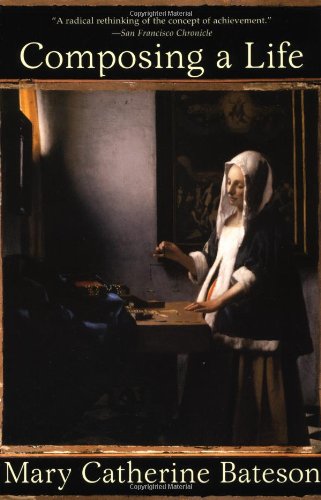Composing A Life
By Mary Catherine Bateson

The very first sentence of the main text: “This is a study of five artists engaged in that act of creation that engages us all — the composition of our lives.” I love this sentiment; it seems a perfect summary of what I hope the book delivers.
Composing a Life is “[a] radical rethinking of the concept of achievement.” Bateson profiles five women, including herself; using their lives as “framework”, she “delves into the creative potential of the complex lives we live today,” illustrating how life can be — is — a creative process regardless of whether we live it as artists or as ordinary people.
The book is “rooted in friendship” — the other women profiled are her friends; these are intimate portraits. She acknowledges the book’s bias, that it focuses on “productive and successful” lives, not “tragic” ones — though she states that she’s learned as much from the latter.
It’s not an academic text, but it is informed by her academic work, and parts of its “intellectual framework” echo the work of her parents, Margaret Mead and Gregory Bateson, both influential academics. It covers themes like improvisation, discovery, redirection, rhythms, change. It proposes the idea of a “new social ecology” for and by women.
The book comments on something referred to as “the newly fluid movement of adaptation” — and while I’m not sure exactly what that means, it seems to imply a burgeoning realization that life does not have to adhere to predetermined contours and established scripts.
